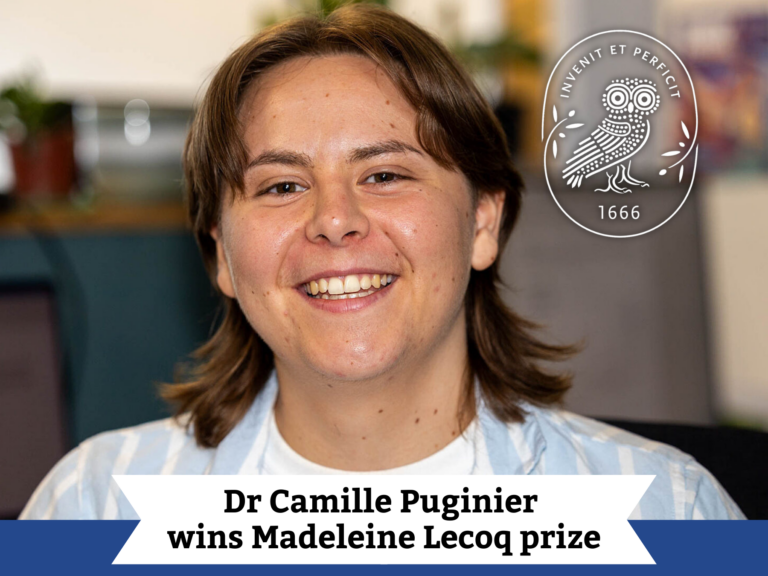Plant scientists welcome relaxation of gene editing rules
The Sainsbury Laboratory strongly welcomes new UK legislation relaxing gene editing rules in crop research and encourages further steps to be taken to enable sustainable agriculture.

Top row shows tomato leaves infected with powdery mildew, while bottom row shows leaves of Tomelo gene-edited tomatoes, resistant to powdery mildew.
Scientists at The Sainsbury Laboratory, a plant and microbial research institute in Norwich, welcome the new legislation announced by Defra which will cut red tape for the use of gene editing in plant research. The Sainsbury Laboratory makes fundamental scientific discoveries in molecular plant-microbe interactions and applies these to reduce crop losses caused by plant diseases, particularly in low-income countries. By lifting the regulatory burden associated with gene editing field trials, more resources can be invested in the innovative research needed for sustainable agriculture.
We need to intensify global food production to feed our growing human population, while also drastically reducing the environmental impact and carbon footprint of modern agriculture. The urgency is amplified by the climate emergency, so we need to start finding solutions without delay.
The many chemical inputs into agriculture are ultimately dependent on fossil fuels. These agrochemicals have been integral to secure the food supply we have today. However, finding similarly effective but sustainable alternatives is challenging.
Gene editing allows precise mutations to be made in plant genes much quicker than with other methodologies used currently. This new technology therefore allows plant breeders to directly select the variants they need for new crop varieties. We know that very small specific changes in genes can have a really positive impact on crop growth and development, and the ability of plants to grow in more challenging environments, such as low nitrogen conditions. This means that those crops would require less nitrogen fertilizer, the production of which is responsible for half of the total energy used in commercial agriculture.
Moreover, by simply deleting a gene that makes a plant susceptible to a disease, a more resistant variety can be developed that will require less pesticides.
For example, powdery mildew disease is one of the main reasons why British tomato growers spray fungicides on their crops. By removing a gene that makes tomatoes susceptible to powdery mildew disease, researchers at The Sainsbury Laboratory were able to develop a new resistant variety, the Tomelo, in a single step. Professor Sophien Kamoun and his team made the technological pipeline publicly available, allowing plant breeders from all over the world to access and further develop this approach.

Tomatoes gene-edited with CRISPR/Cas9 in the PROCERA gene. Most glasshouse cultivars of tomatoes tend to be tall, trailing plants that require additional mechanical support, pruning and side-shoot management. These dwarf tomatoes may prove useful to the tomato industry.
Gene editing is also a powerful research tool which allows us to understand the roles of genes in plant immunity. Breakthroughs in our fundamental understanding of the science are the foundations of the next set of innovations in agriculture.
Professor Jonathan Jones and his collaborators intend to test gene edited versions of plant species in a field trial to investigate the genes underpinning the extreme resistance of some species to the late blight pathogen Phytophthora infestans. Finding resistance genes is key in developing resistant crop varieties that require less fungicide. Currently, potato crops in Europe are sprayed with fungicides 15 to 20 times a year to prevent the considerable losses caused by late blight, a disease that triggered the notorious Irish potato famine. They have also used the method to create a more compact tomato, and are applying the same approach to create a more compact and robust potato.
While disease resistance can be achieved through gene editing, resistance is primarily limited by the immune receptor genes already present within a plant genome. Genetic modification enables multiple resistance genes encoding such immune receptors to be transferred from one species to another, leading to durable resistance which will be unlikely for a pathogen to overcome. This method was successfully applied by Jones’ team in developing the fully late blight-resistant Maris Piper potato.

GM Maris Piper potatoes (top row) that are resistant to both late blight and tuber blight, developed at The Sainsbury Laboratory.
Current agricultural practice is unsustainable, and we urgently need innovation. Methods such as gene editing and genetic modification are crucial for intensifying crop production in a sustainable way. With the new freedoms outside the EU, The Sainsbury Laboratory encourages further steps to be taken towards the commercialization of gene edited products as well as a new regulatory framework for genetic modification.
Professor Nick Talbot FRS, Executive Director of The Sainsbury Laboratory, said:
“Gene editing provides the opportunity to deliver knowledge-based plant breeding and harness plant biodiversity. We can achieve the outcomes of plant breeding—which has been so successful in controlling diseases and improving yields—but in a much more precise manner. In this way, we can aim to produce nutritious crops requiring much lower fertiliser inputs and with greater resilience. We need innovation to help us escape from the chemical treadmill of current agriculture. In the face of the climate emergency, doing nothing is no longer an option.”
Professor Sophien Kamoun FRS, Group Leader at The Sainsbury Laboratory, said:
“Gene editing technology can be used to remove genes from crop genomes that make them susceptible to diseases. We need to be able to use these innovations if we want to provide enough food for our growing human population without causing further damage to our environment."
"Back in 2013, our scientists at The Sainsbury Laboratory were among the very first to develop the CRISPR gene editing tech in plants, a technology that carries so much potential and so many opportunities for world agriculture. Yet, we had to sit back and watch other countries, like the US and Japan, bring their CRISPR bio-edited plants to market. I hope that we can finally capitalize on the world-leading research base we have in this country in plant sciences and help make agriculture more sustainable.”
Professor Jonathan Jones FRS, Group Leader at The Sainsbury Laboratory, said:
“I welcome the decision of DEFRA to act on the scientific consensus about the utility and safety of gene editing for crop improvement. Enabling plant breeders to take advantage of these benign and useful methods is essential to increase food production by 50% by 2050, in a warming world, while minimizing agrichemical use.”
“I’m also pleased to see in the DEFRA statement that there are plans to adopt a more scientific and proportionate approach to the regulation of genetic technologies. In our own work, we use the GM method to move immune receptors from one plant to another, increasing the plant's capacity to activate its defenses quickly enough to thwart disease. The government must not miss the opportunity to facilitate use of this benign and helpful method for reducing the environmental impact of agriculture, and I look forward to seeing this reassessment implemented.”
Ends
Notes for Editors
For more information or to arrange an interview with Nick Talbot, Jonathan Jones or Sophien Kamoun please contact Mia Cerfonteyn at mia.cerfonteyn@tsl.ac.uk or +44 7542028857.
Further reading:
Blight-resistant Maris Piper: https://www.tsl.ac.uk/news/blight-resistant-maris-piper
Tomelo, a gene edited tomato: https://www.nature.com/articles/s41598-017-00578-x
Gene-editing a more compact tomato plant: https://pubmed.ncbi.nlm.nih.gov/29797460/
The role of genetic technologies in sustainable agriculture: https://www.tsl.ac.uk/news/the-role-of-genetic-technologies-in-sustainable-agriculture
About The Sainsbury Laboratory, Norwich
The Sainsbury Laboratory (tsl.ac.uk) is an independent research institute that focuses on plant health for a sustainable future. It makes fundamental scientific discoveries in molecular plant-microbe interactions and applies these to reduce crop losses caused by plant diseases, particularly in low-income countries. Around one hundred and twenty staff and students work and study at the Laboratory which is located on the Norwich Research Park, United Kingdom. The Laboratory is generously supported by the Gatsby Charitable Foundation and by the University of East Anglia, wins competitive grants from the BBSRC, ERC and other research grant funding bodies and, for some research programmes, is funded by commercial companies. Established in 1987, highlights of The Sainsbury Laboratory include: discovery of RNA interference in plants by Prof. Sir David Baulcombe FRS as recognised by the Lasker Award and the Wolf Prize in Agriculture, discovery of the first immune receptor in plants by Prof. Jonathan Jones FRS, three current Group Leaders are Fellows of the Royal Society, and five researchers who have been on the Highly Cited Researchers list of top 1% scientists in the world since 2018.


